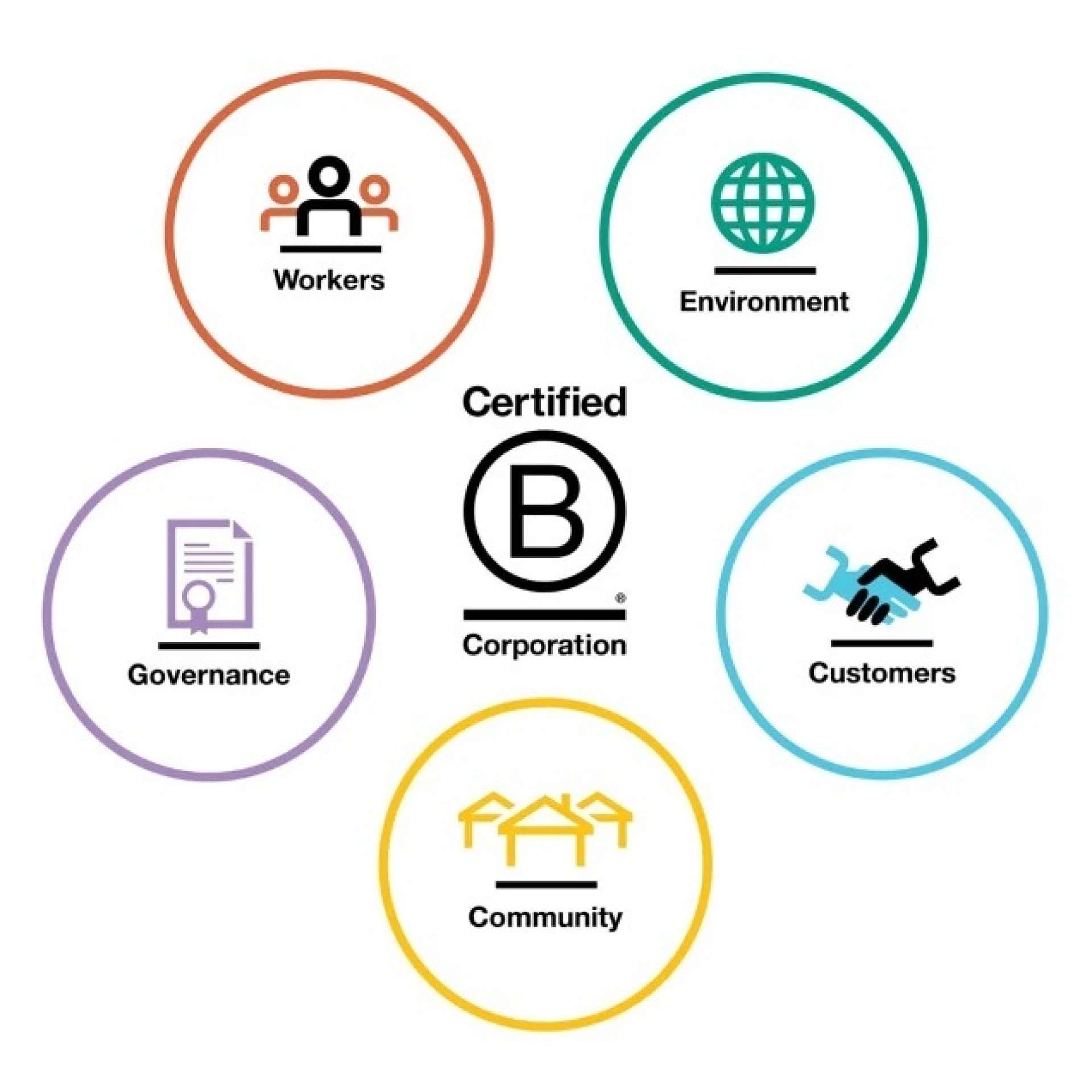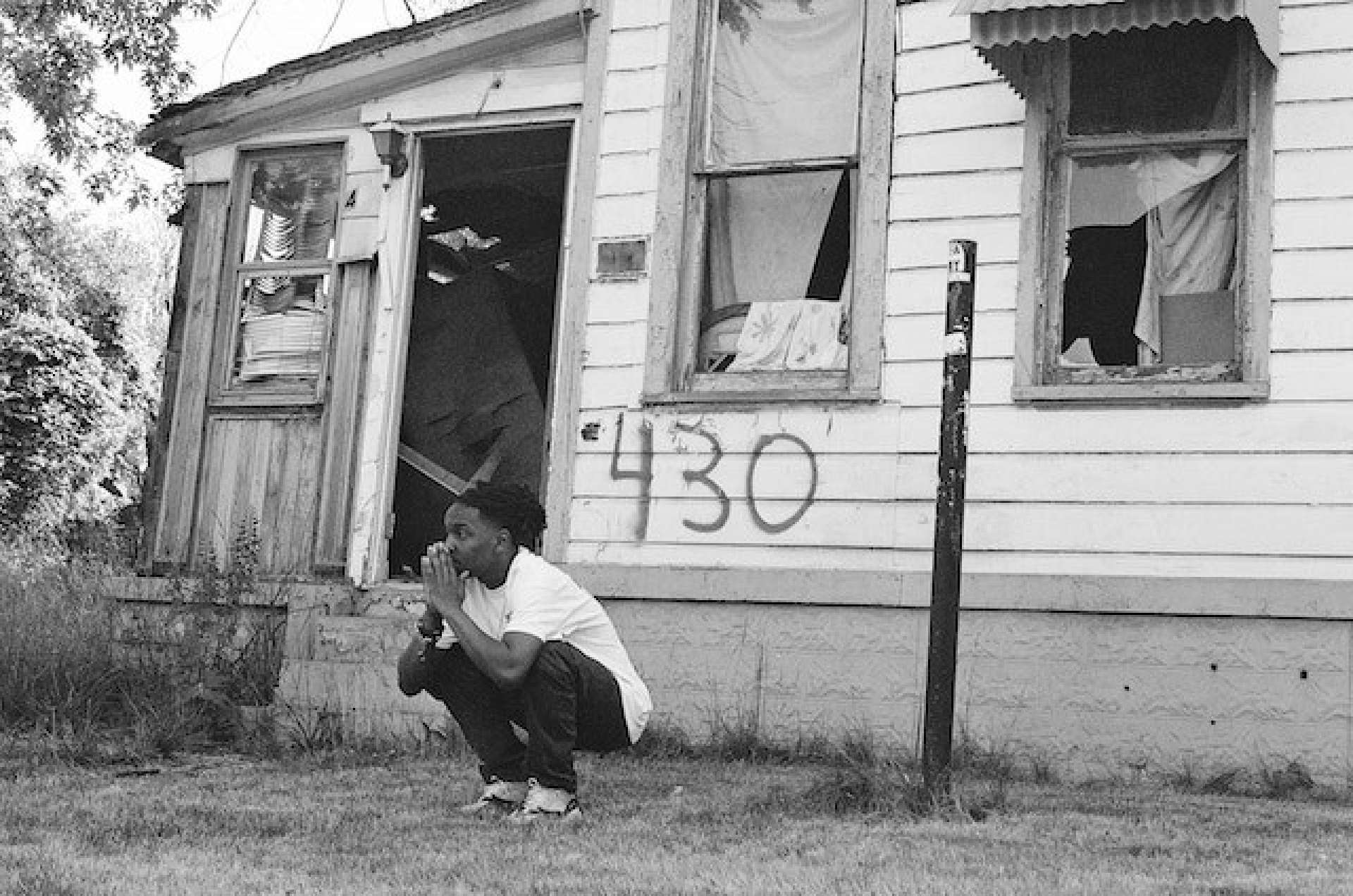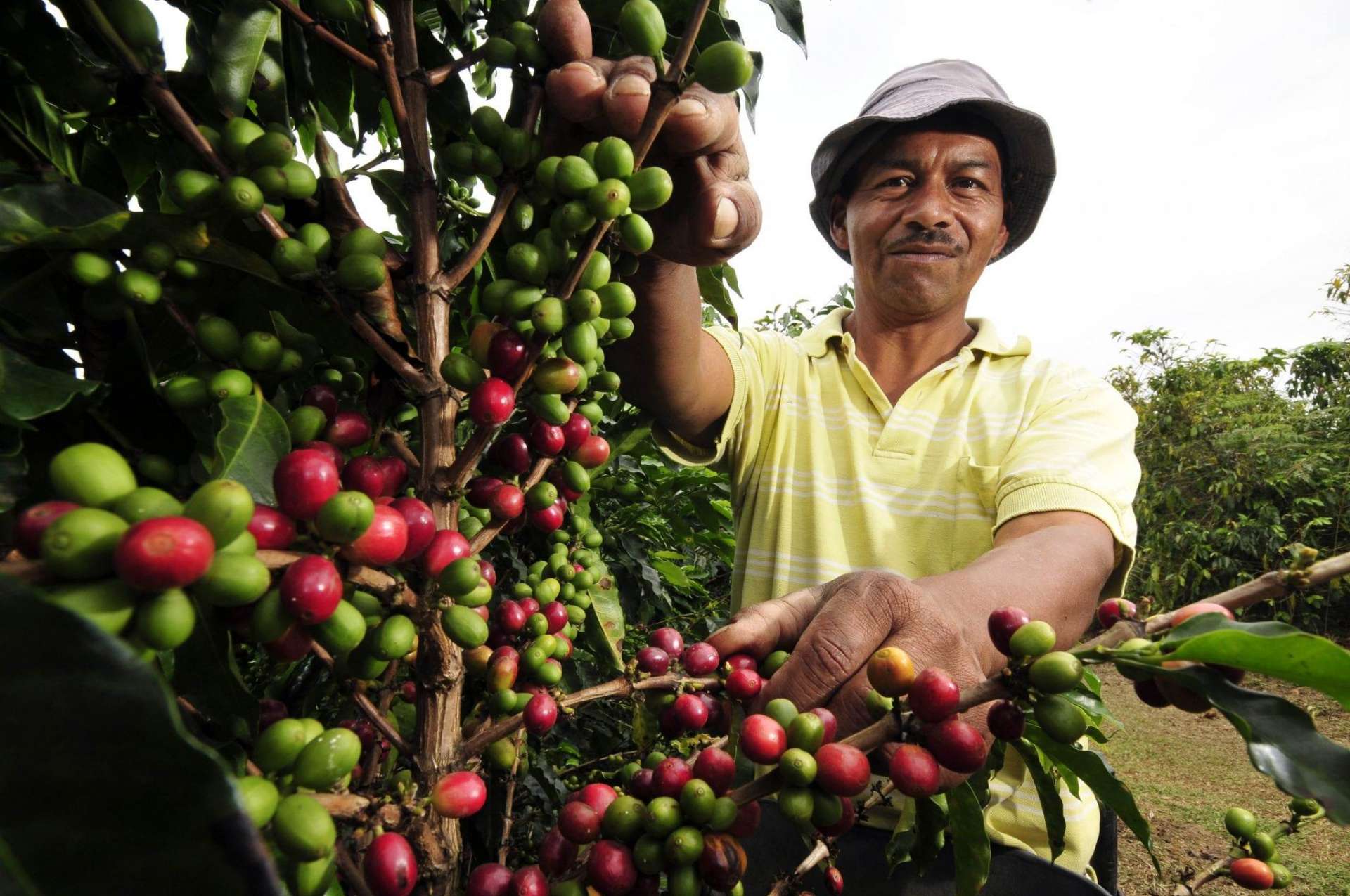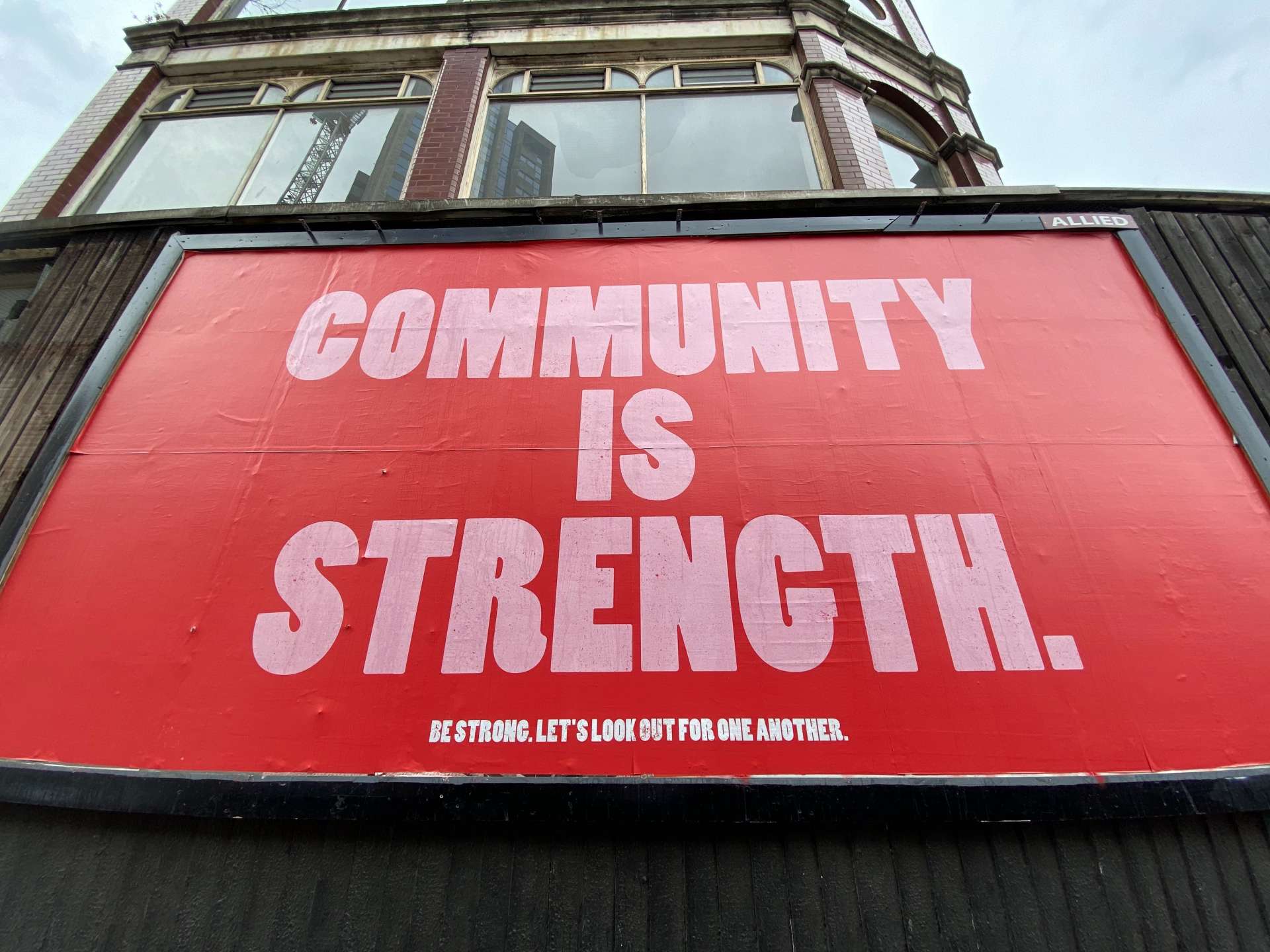Community Centered
Our Exploring the B Impact Assessment series examines each of the five sections in the B Lab's B Impact Assessment and review examples of companies that have been recognized as Best for the World in their impact area. If you’ve read our Build a Better Business - Community blog, then you may be eager to revisit this topic and learn more about why implementing an employee engagement strategy in your company is important for long-term development.

The Community section of the BIA evaluates a company’s engagement with and its impact on the communities in which they operate, hire from, and source from. This section recognizes business models that are designed to address specific community-oriented problems, such as poverty alleviation through fair trade sourcing or distribution via microenterprises, producer cooperative models, locally focused economic development, and formal charitable giving commitments.
Business in Alignment with Community
As noted in our blog about growth, Community (e.g., Society) is the second circle in the theory of the nested economy. Without a healthy community, economies cannot function. To ensure longer term success, Community must be considered as a stakeholder because the success of each business heavily depends on healthy, vibrant communities.
The connection between business and community is simple. Manufacturers that release toxic chemicals into local rivers and watersheds effectively poison their own employees. Underpaid employees may need to work multiple jobs or may be unable to afford housing in the local community, resulting in longer commute times and fatigue and burnout. Both scenarios result in sick, unhealthy employees and will increase sicks days and reduce productivity and profitability. Employees may also pursue other job opportunities, leading to increased attrition which increases expenses and drains knowledge.
We can look at rural towns to understand the clear connection between Community and Economy. Before massive consolidation by corporate agriculture, profits would have accrued to local farmers who would spend their money in the town and thereby support other businesses and local families. Corporate agricultural companies invest less in the surrounding rural communities because profits are distributed to employees and shareholders well beyond the rural communities. As small farms have gone out of business or been sold because they are unable to compete with corporations, small town economies have been hollowed out.

The problem isn’t relegated to small urban areas. Migration and decentralization of manufacturing has impacted Detroit over the last 50 years. In 1970 the poverty rate was 14.9 percent and increased to 33.2 percent in 2021. By 2015, 1 of every 3 houses in Detroit were subject to foreclosure. Suburban flight and poor urban planning had impacts, but large businesses – read as the auto industry – left the city to pursue profit over people. When jobs transfer from one community to another, those who are left and without the financial means to relocate are left with few options. This is a clear example of the impact the business sector has on our communities.
Buying locally
An effective way to build resilient communities is by buying local. The local economy retains approximately 48-54 cents of every dollar spent with locally owned businesses. Spending at a big box store retains 14 cents, while only 1 cent stays in the local economy when purchases are made online. All aspects of a community are impacted when 99 cents of every dollar leave the local economy. People involved with purchasing decisions should be considering who they buy from and prioritize locally owned businesses to create a more resilient local economy.
The definition of local is relative and it isn’t always possible to find what you need close to where you do business. In terms of purchasing, local should be considered as being proximate to your location and radiating outwards in a series of concentric circles. The priority should be to purchase from businesses within your city. The next option would be nearby cities, then your county and neighboring counties, followed by your state and region, and lastly your country.
There are a variety of reasons why buying local may not make sense for a business. Perhaps local options are of a lower quality, aren’t as advanced, or don’t provide the desired array of options. Maybe there isn’t an option at all. A business needs to find the right materials and products that will make them successful, and that isn’t always possible to do locally. But all purchasing decisions involve multiple considerations and trade-offs, and location should be near the top of the list.
Buying ethically
Community extends beyond the places we live and work. Community represents all people in the global community and every purchase a business makes impacts a community somewhere, whether they see the impact directly or not.
How a business engages their employees, their suppliers, and their communities matters. In addition to considering the location of a supplier, it is also important to consider a supplier’s business practices. Considerations include whether the supplier pays a family living, whether they hire employees rather than using contractors, if they donate revenue or profit, or other ways they engage with communities.

As an example, suppliers that source raw materials, such as coffee and cocoa, should consider where their beans come from. Some coffee and cocoa beans are grown in conflict areas and purchasing beans from those locations (e.g., Ivory Coast) may support those individuals creating the conflict. Also, many growers manage only a few acres and have less bargaining power than large growers and may earn less for their crop as a result. Purchasing from ethical brokers, or preferably directly from the farmer, ensures that farmers are fairly compensated and that their villages remain economically resilient.
We can’t expect to receive high-quality products and raw materials when the communities that provide them are not physically and financially healthy and vibrant. And ethical and fair practices have an outsized impact on that health and vibrancy.
B Lab’s Approach to Community
The Community section of the BIA addresses four categories:
- Diversity, Equity, and Inclusion considers employee and ownership diversity, hiring practices, and supplier diversity
- Economic Impact evaluates job growth, local ownership, and local and national sourcing, and sourcing practices in general
- Civic Engagement focuses on a business’s community engagement practices as it relates to giving, volunteering, and advocacy
- Supply Chain Management includes supplier screening for environmental and social practices, support for low-income communities, codes of conducts, and other aspects of supplier relationships

This year, Measure Meant is honored to have been recognized by B Lab as Best for the World: Community 2022. Here are a few other small businesses that received the same recognition:
Organic India | Tea
This is a women-owned company based in Colorado that makes an impact by working directly with tea famers in Uttar Pradesh, India. Organic India pays a Fair Trade premium, signs and pays contracts upfront so that farmers have capital to grow their crops and support their families and communities, and helps farmers expand and improve their growing practices. By directly engaging farmers and eliminating brokers and other middlemen, Organic India ensures that farmers receive the full value for their work.
Parker Clay | Leather goods
A women-owned business in California, Parker Clay sells leather bags and accessories. They use their business to support women in Ethiopia by providing skills training and job opportunities. For Parker Clay, their work is about empowering women. “We believe that when you empower a woman, you empower a village, and in Ethiopia, we’re creating opportunities for women today to build a better world for tomorrow.” This means giving women the opportunities to impact their own communities directly and by finding their own solutions.
Public - Supply | Writing products
Schools increasingly rely on students to bring their own school supplies and in some cases, teachers are using their own income to purchase needed supplies, such as pencils, paper, and art supplies. Public - Supply contributes 25% of their annual profits to schools and teachers. Customers who purchase their notebooks can be confident that their purchases are providing needed support to students in the public school system. Their products are made in the USA, giving additional support to our communities.

Solving community-based problems
Many communities in the US – and around the world – are struggling with poverty, homelessness, drug abuse, violence, and health-related issues (amongst others). It is easy for businesses to sit on the sideline and expect government to fix these problems. But all of these problems have a direct impact on the business community, and it is imperative that they recognize they are a critical partner in directly solving these problems rather waiting for someone else to do it for them.
While many in the business community don’t take this view, some businesses do and are using their platform, products, and services to make a difference. They see the direct connection between their communities and their success as businesses. That connection is undeniable. If all businesses would acknowledge what they know to be true, community-related problems would be significantly easier to address.
Measure Meant strives to give local businesses the tools and strategies they need to make an impact. Are you interested in getting started? Let’s make a difference together!
Read More
Reject the business case for sustainability: The 1980s wants its business case back
They say a rising tide raises all boats. But there isn’t any raising to be done when the tide no longer comes into the bay – all boats remain stranded. We are often asked about the business case for sustainability. For y
Protect Your Community or Organization with a Climate Action Plan
Introduction Our changing climate impacts every aspect of our lives—our economy, our communities, and the environment—in ways both visible and unseen. While scientists and environmental organizations have long recognized
Witnessing the world of sustainable business firsthand
As a young student with a passion for climate justice and sustainability, it always felt like a contradiction to pursue a degree in business. From what I had witnessed, businesses didn’t necessarily operate ethically. Mu
Interning with Purpose: My Journey with Measure Meant
From January to May 2024, I had the distinct pleasure of working with Measure Meant as an Operations Intern. As a graduating senior at Gonzaga University, I had not planned on pursuing another internship in my final seme




